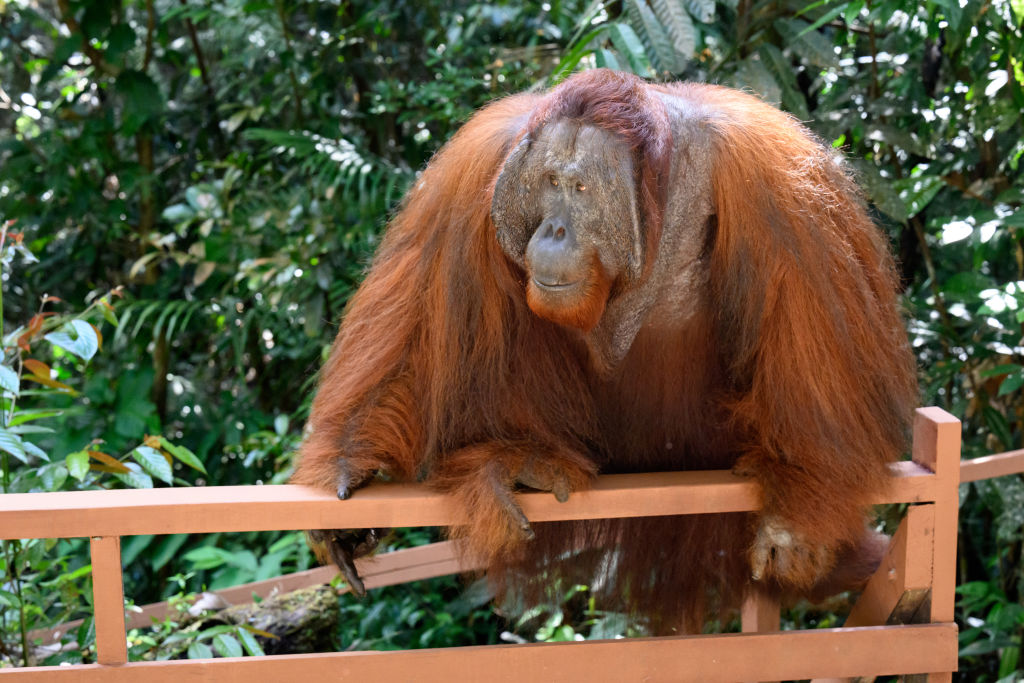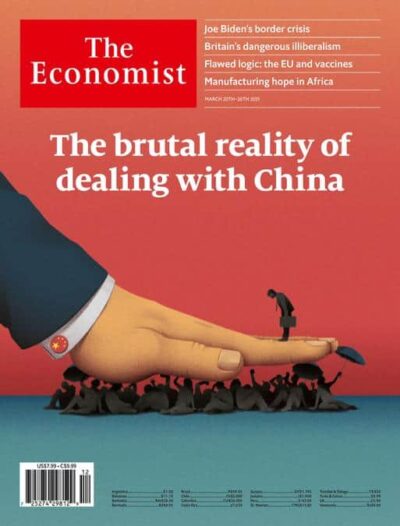

Malaysia Plans Its Own ’Orangutan Diplomacy,’ Inspired by China’s ‘Panda Diplomacy’
Malaysia plans to gift orangutans to its major buyers of palm oil, a commodity long blamed for destroying habitats of the endangered apes.
The world’s second-biggest palm grower is taking inspiration from China’s “Panda Diplomacy,” and is considering to gift the orange-haired mammals to some of its trading partners, including the European Union, as part of the country’s “strategic diplomatic move.”
[time-brightcove not-tgx=”true”]
Read More: How Pandas Are Becoming a Tool of Chinese Diplomacy
“This will be a manifestation of how Malaysia preserves wildlife and ensures sustainability of our forests, especially within the palm oil plantation landscape,” Johari Abdul Ghani, the Southeast Asian nation’s plantations and commodities minister, said in a post on X. The move will prove to the world that Malaysia is committed to biodiversity conservation, he said.
The idea follows accusations and restrictions by some palm oil importers, such as Europe, that its cultivation destroys rainforests, drives endangered animals toward extinction, and is linked to labor abuse. Environmental groups have stepped up scrutiny of the crop, while the EU is introducing rules to stop products that cause deforestation from being sold in shops.
“Malaysia must not take a defensive stance on palm oil,” Johari said. “Instead, we have to show the world that Malaysia is a producer of sustainable palm oil and is committed to safeguard forests as well as environmental sustainability.”
Indonesia and Malaysia, the world’s top palm oil producers that collectively account for about 85% of global output, have pledged to work together to counter “anti-palm oil campaigns” launched by some western countries. Palm oil is a versatile ingredient found in products such as pizza, instant noodles, and shampoo.
Orangutans are found in the rainforests of the Southeast Asian islands of Borneo and Sumatra, according to the World Wildlife Fund. The great apes are critically endangered — with their population estimated at about 120,000 — and threatened by rapid deforestation mainly due to palm oil and other agriculture plantations, the organization said.
Get the latest work and career updates delivered straight to your inbox by subscribing to our magazine category today. Stay informed and ahead of the game with Subscrb.
The content on this website has been curated from various sources and is for informational purposes only. We do not claim ownership of any of the content posted here, all rights belong to their respective authors. While we make every effort to ensure that the information is accurate and up-to-date, we cannot guarantee its completeness or accuracy. Any opinions or views expressed on this website are solely those of the original authors and do not necessarily represent our own. We do not endorse or take responsibility for the content or actions of external websites or individuals linked from this website. Any reliance on the information provided on this website is done at your own risk. Please note that this article was originally seen on the source website TIME, by the author Anuradha Raghu / Bloomberg
-
SALE!




Forbes Asia Magazine Subscription
From: RM220 / year -
SALE!


Fortune Magazine Subscription
From: RM118 / year -
OUT OF STOCK




The Economist Magazine Subscription
From: RM1530 / year -


Inc. Magazine Magazine Subscription
From: RM22 / year -


Consumer Reports Magazine Subscription
From: RM22 / year -


Harvard Business Review Magazine Subscription
From: RM83 / month -


Entrepreneur’s Startups Magazine Subscription
From: RM4 / year -


BILLIONAIRE Magazine Subscription
From: RM131 / year



